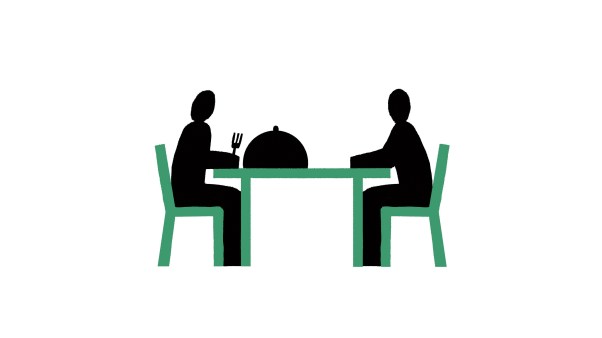The word apocalypse in the Greek means “uncovering,” and 2018 has been a year of uncoverings, of pulling back the curtain to reveal the worst things that people can do to one another. It has uncovered abuse and corruption at every level—spilled blood, separated families, failure of justice after failure of justice, each headline hitting so quickly that it feels impossible to give anything the attention it deserves. There will be more before the end of the year; there will be more before you even finish reading this piece.
It’s hard to rejoice in an atmosphere like this. “The most wonderful time of the year” does not seem wonderful; shopping, twinkle lights, hot chocolate, ice skating and the bright bombardment of advertisements fill the space like cotton candy, too sweet and flimsy.
Like we do every year, my parents took my brother and me to see “A Christmas Carol” on stage to get everyone into the Christmas spirit (which is no small feat at the end of November). The story is familiar and heartwarming, but the song they ended their production with struck me: “I Heard the Bells on Christmas Day.” Set to music a few decades later, this poem by Henry Wadsworth Longfellow was written over Christmas of either 1863 or 1864, in the middle of the bloodiest war in American history.
The carol is not cotton candy; it is a beating heart, laid bare in seven stanzas with simple language. At the second-to-last verse, I noticed dimly that I had begun to cry; by the end of the song, my face was wet with tears.
“And in despair I bowed my head; ‘There is no peace on earth,’ I said; ‘For hate is strong, And mocks the song Of peace on earth, good-will to men!’”
It isn’t quite right to call this a cynic’s carol, but in this verse it is a desperate and bitter one. It’s a carol from a man who has had the nature of the world uncovered before him. It’s one of the only carols that still rings true to me in 2018.
Like all good poets, with “Christmas Bells” Longfellow reached out across almost 155 years of history to take my hand.
Henry Wadsworth Longfellow was one of the rare poets to have his work not just appreciated but lauded in his lifetime. He was extolled as a great American poet early in his career, beloved and (rarest of all) extremely well paid. At the height of his career, he had everything.
But in July 1861, the unthinkable happened: His wife Fanny’s dress caught fire in their home. Longfellow burned himself trying to put it out, but it was too late; she died the next day. Because of his own injuries, he missed her funeral; he began growing the trademark beard of his later life because of the facial scarring.
As scholar Edward Wagenknecht put it, “the crowning sorrow of Longfellow’s life came upon him just as the Civil War was getting under way.” The war would bleed the country for four long years and leave a chasm between the North and the South for decades after. “One feels from day to day that the gulf yawns wider,” Longfellow wrote in his journal in 1861. “The dissolution of the Union goes slowly on. Behind it all I hear the low murmur of the slaves, like the chorus in a Greek tragedy, prophesying Woe, woe!”
After the death of his wife, Longfellow refused to allow his son, Charles, to join the army. But in March 1863, Charles ran away to join the Union army anyway. In November of the same year, he was severely wounded. It was a dark sort of luck — one that many families were not afforded — because it meant that Charles was sent home safe but not sound.
“The death of the young men in the war . . . makes my heart bleed when ever I think of it,” Longfellow wrote to his friend Henry Ingersoll Bowditch in 1866. “How much I have felt for you I cannot tell you, particularly on that cold December night when I came back with my son, and saw you at the station and knew that yours would come back to you no more. Pardon me for touching that wound; it is only that I may tell you how deep the impression is.”
This is the landscape in which Longfellow wrote “Christmas Bells.” The original poem, like the song, begins with an image of merrily ringing bells, a marker of the incarnation and a herald of sacred things. The bells remind him of everything that should be made right by the sound of Christmas: peace on earth; goodwill to men; wrongs made right; night crossing over into day, bright and holy.
But Longfellow could not grasp the joy of the season. His heart was heavy. There are two verses in the poem about the Civil War that are omitted from most renditions of the song; in the first, “the cannon thundered in the South,” drowning out the sound of the bells, and in the second “an earthquake rent / the hearth-stones of a continent.”
The penultimate verse—“and in despair I bowed my head”—is a cry to heaven. This sixth verse is the nadir of the poem, the number of incompleteness. It is written from the same place that many of us find ourselves now, at the end of 2018.
We aren’t currently entrenched in a literal civil war, but the cracks in our country’s foundation are splitting wider. People with power abuse it; people without it suffer. The patterns are as old as history, but the offenses are new.
Day after day, the news cycles through horrors. We also grieve globally now, stretched to the edges of our empathy. We see Rohingya refugees fleeing Myanmar, dictator-led violence spiraling in Venezuela. “We know,” like Paul, “that the whole creation has been groaning as in the pains of childbirth” (Rom. 8:22). We take in more information than ever. Many days, it feels a little bit like the end of the world—like an apocalypse.
It feels exactly like Longfellow noted in his journal in 1861, at the cusp of war: We, too, are living in “weary days with wars and rumors of wars, and marching of troops, and flags waving, and people talking. No reading but reading of newspapers.”
Many Yankee Protestants didn’t view the apocalypse the way that we do now. In American Apocalypse, James H. Moorhead explains that most people didn’t really think the world was ending—but they did see the conflict as a climax in world history, ushered in by God to replace the corruption of the old order. For the North, the Civil War became a holy crusade—according to The Independent in 1861, the “hinges on which the destiny of nations and ages” would turn. “Either the United States was crossing its Red Sea,” writes Moorhead, “or it was no more than another piece of litter along history’s way.”
In many ways, they were right. It was the end of their world, a foundational change to the lives they knew. Not the apocalypse, but an apocalypse. The world is always ending. The curtain is always being drawn back.
And the light will always expose dark and hidden things. 1 Corinthians 4:5 says that God “will bring to light what is hidden in darkness and will expose the motives of the heart.” Luke 8:17 says that “there is nothing hidden that will not be disclosed, and nothing concealed that will not be known or brought out into the open.”
So maybe, then and now, each small apocalypse is God’s own revelation, a single step closer to his justice being carried out—if not in this world, then the next. History is never as simple as “things got better,” but slavery was outlawed; the Civil War did end.
Even in light of his Unitarian faith, Longfellow finally brings the gospel to bear in the seventh and final stanza of “Christmas Bells,” the number of the crowning day of creation. This stanza is a triumph, a thrill like the bursting forth of Easter Sunday:
“Then pealed the bells more loud and deep: ‘God is not dead, nor doth He sleep; The Wrong shall fail, The Right prevail, With peace on earth, good-will to men.’”
Even in such a valley of death, Longfellow holds fast. “Where is God in this? Where is justice?” he asks. “He is here, working beside us. It is coming,” he answers.
God does not sleep; he is awake. He is bringing his kingdom to us. The last thing we see in the Bible is an image of “a new heaven and a new earth,” with “no more death or mourning or crying or pain” (Rev. 21:1, 4). This kingdom is not merely a far-off dream. In the gospels, Jesus repeats one phrase: “The kingdom of heaven has come near.”
God is working to bring justice, and he allows us to work with him. The apocalypse continues to come, and each revelation shows us not only the nature of the world but of our own hearts, dark and cruel and selfish. But God is here; he is carving out a place for himself inside us. He is scrubbing the grime off our hearts until they can bleed and beat again.
The world is always ending, but one day, it will end. Justice is never done, but one day, it will roll down like a river. What is left for us in the meantime, then? What was left for Longfellow, in the midst of his own grief? How do we keep going in a world that has been gripped by despair for thousands of years?
In Ezekiel 2, the prophet finds himself at the feet of the living God. “Son of man, stand up on your feet and I will speak to you,” God says. But Ezekiel does not stand up. He can’t. Instead, this is what the next verse says: “As he spoke, the Spirit came into me and raised me to my feet, and I heard him speaking to me.”
Despair is heavy; the world continues to mire us in it. Hate is strong; it drowns out everything else until we cannot hear the voice of God.
Here is how we keep going when we have no hope left, when we cannot pull ourselves up: God says, “Get up,” and when we can’t, he fills us with the Spirit and pulls us to our feet. He is here with us. He is not dead. He is not sleeping. He has come down to earth, enfleshed and incarnate, to bring justice and peace. Immanuel: God with us.
Kristen O’Neal is a New York City–based writer whose work explores faith and culture. You can find her at @Kristen_ONeal or on her website, kristenonealwrites.com.
Have something to say about this topic? Let us know here.










